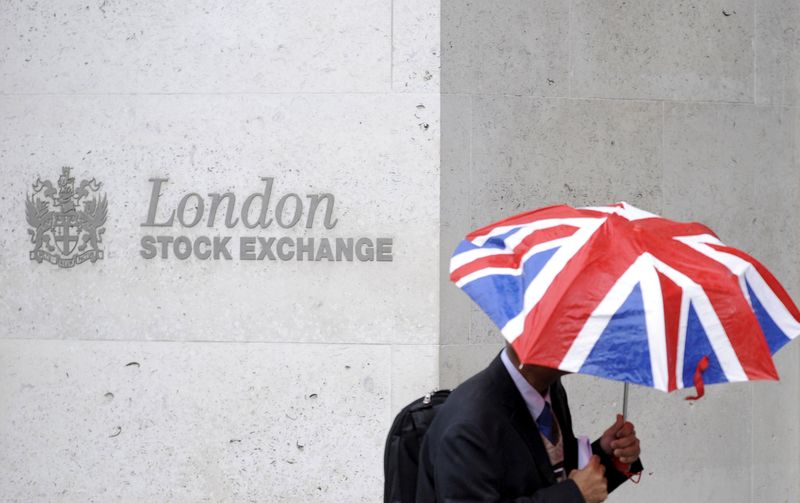By Shivani Kumaresan and Noor Zainab Hussain
(Reuters) - London's FTSE 100 plunged to an almost four-year low on Monday as a crash in oil prices driven by a price war between Saudi Arabia and Russia stoked global recession fears, with investors alarmed about the economic fallout of the coronavirus outbreak.
Oil majors BP Plc (L:BP) and Royal Dutch Shell Plc (L:RDSa) recorded their worst day ever, as Saudi Arabia slashed its official crude selling price following Russia's refusal to cut output to match lower demand on the back of the health crisis.
The wider oil and gas sector (FTNMX0530) plunged more than 18% and led the bluechip decline.
The commodity-heavy FTSE 100 (FTSE) slumped 7.7%, its worst day since the global financial crisis in 2008, while the domestically focussed mid-cap index (FTMC) shed 6.4%.
All but one stock listed on the FTSE 100 fell, with auto parts (FTNMX3350), banks (FTNMX8350) and mining (FTNMX1770) stocks among the biggest decliners.
"Stock markets have plummeted today as continued fears about the coronavirus combined with the fresh worries of a price war in the oil market has battered sentiment," CMC Markets analyst David Madden said.
"Dealers are terrified that more swathes of Europe will go into quarantine, and that has been a factor in the brutal sell-off in stocks ... there are serious concerns that some economies could slow down or even get pushed into a recession," he added.
European firms have lost $3 trillion in value since fears of the economic damage from the epidemic sparked a worldwide sell-off last month, with the equity market now firmly in bear market territory. (EU)
"It has been quite an extraordinary day overall in the markets," OANDA analyst Craig Erlam, said.
Fears of a global recession have also been amplified by a reduction in global growth forecasts as the unchecked spread of the virus prompted harsher containment measures and crippled supply chains.
Britain is making extensive preparations for additional measures to tackle the coronavirus outbreak, Prime Minister Boris Johnson said on Monday.
The number of confirmed cases of coronavirus in the United Kingdom rose by 30% to 273, the government said on Sunday, and a third person who tested positive for the virus has died.
Central banks around the world have taken measures to inject more cash into financial markets, with traders now expecting the U.S. Federal Reserve to cut rates again on March 18 after an emergency reduction last week.
All eyes are now on the European Central Bank meeting on Thursday, but analysts have questioned the efficacy of monetary policy easing to revive supply chains.

"Monetary and fiscal policy will be of limited effect until prices more broadly reflect a very high probability of recession," said Bill Zox, chief investment officer for fixed income at Diamond Hill Capital Management.